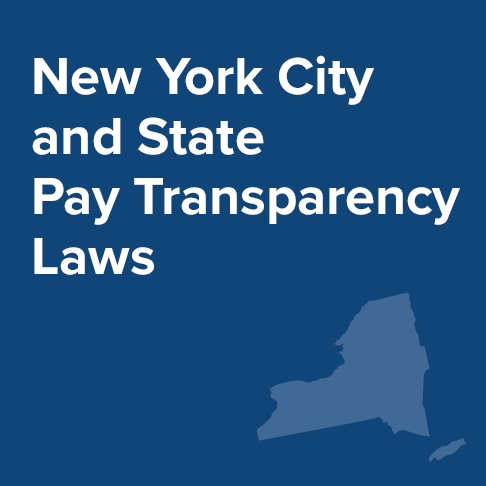New York City and State Pay Transparency Laws

New York City and State Pay Transparency Laws
On April 28, 2022, the New York City Council passed an updated version of the New York City Pay Transparency Law, Int. 134-A. While previously requiring compliance by May 15, 2022, this updated law now requires that by November 1, 2022, employers of four or more employees must include a salary or hourly range in each advertised position, promotion, or job transfer opportunity that can or will be performed, in whole or in part, in New York City, whether from an office or remotely from the employee’s home. The posted minimum and maximum salary range must be based on what “the employer in good faith believes at the time of the posting it would pay for the advertised job, promotion or transfer opportunity.” Covered employers in violation of the law may be liable for monetary damages and may be required to engage in other forms of affirmative relief. Further information on implementation of this new law can be found here.
Following New York City’s lead, on June 3, 2022, the New York State Legislature passed SB 9427, which, if signed into law by Governor Hochul, would require New York employers to include a salary range and description of each position being advertised effective 270 days after the bill is signed into law. Like the NYC law, the State law provides that an employer (1) cannot advertise a job, promotion, or transfer opportunity without disclosing the compensation or range of compensation for the position, and (2) defines a range of compensation as “the minimum and maximum annual salary or hourly range of compensation for a job, promotion, or transfer opportunity that the employer in good faith believes to be accurate at the time of the posting of an advertisement for such opportunity.” Unlike the NYC law, however, the State law (1) allows employers to include a fixed level of compensation instead of a minimum/maximum pay range, and (2) requires that job postings include a description of the position. While no private right of action is expressly created by the State bill, violations would be subject to civil penalties ranging from $1,000 to $3,000 per violation, depending on whether it is the first, second, or subsequent violation. The full text of SB 9427 can be found here.